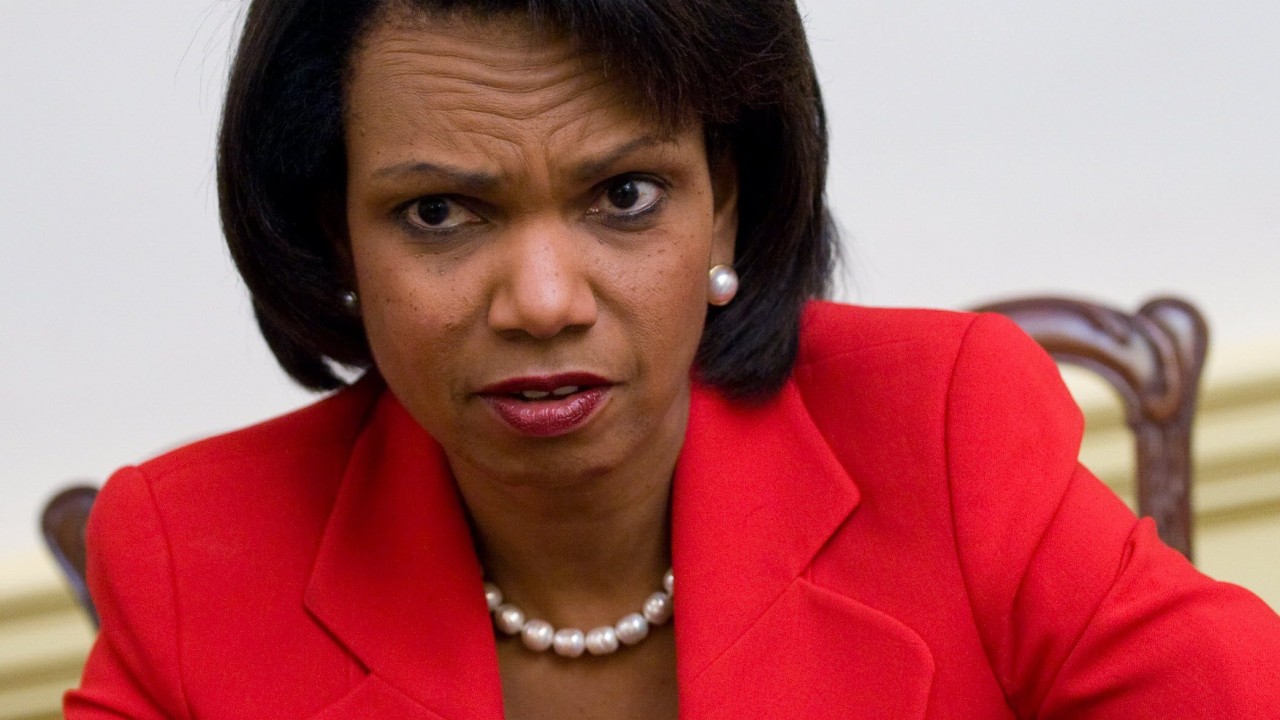
“If we are able to do that in negotiations, we will do so. If we’re unable to do that, we won’t do so,” Donovan added.
In a similar vein, Condoleezza Rice, a former US secretary of state and national security adviser, said in her keynote address at the event that “Chinese insistence on being able to marry their civilian and military capabilities” was problematic.
Signed in 1979 by then-US president Jimmy Carter and Chinese paramount leader Deng Xiaoping, the STA was the first bilateral pact finalised between the two countries after they established diplomatic ties.
The STA laid out the terms for government-to-government cooperation in science, opening the way for academic and corporate interactions.
‘No need to be so nervous’ about competing with US, Beijing’s advisers say
‘No need to be so nervous’ about competing with US, Beijing’s advisers say
The State Department extended the deal by six months in August, when it was originally scheduled to expire.
Donovan on Tuesday said a team from his office was negotiating the STA with its Chinese counterparts in Washington “as we speak”.
The round-table group, established in 2020, facilitates discussion among the intelligence, law enforcement, industry and academic communities on threats and benefits of open research and international collaboration.
Xi-Biden summit: leaders agree to revisit historic science and technology pact
Xi-Biden summit: leaders agree to revisit historic science and technology pact
Scientific advancements in the world’s second-largest economy showed how “different things are today”, said Kaiser, observing that US-China interactions had become “even more complex and more challenging”.
Many from the research community on Tuesday agreed and warned against the STA being discontinued.
Thomas Fingar, a Stanford scholar, argued the US could not let the pact “go to zero”, believing such a scenario would “effectively stigmatise cooperating with Americans, American institutions [and] Americans participating in international enterprises”.
“And that’s just too big a price, in my judgment, to pay for a feel-good political gesture,” the former US assistant secretary of state for intelligence and research said.
AI deal shows China, US can cooperate on tech rules despite rivalry: analysts
AI deal shows China, US can cooperate on tech rules despite rivalry: analysts
Richard Meserve, a past president of the Carnegie Institution for Science, agreed there was “value” in working together, but cautioned that “we need to be careful on what we collaborate in”.
Rice, who served in her two top-level government positions during the George W Bush administration, went further, urging a defence of American national interests while not shutting the door on the world’s best minds.
The one-time Stanford provost recounted how she told FBI boss Christopher Wray in a recent meeting that US visa application-vetting must be improved to avoid sending Chinese spies to American institutions of science and research.
“If we are about to admit somebody who you think is working for the PLA, don’t give them a visa,” Rice said, referring to the People’s Liberation Army. “But don’t let us admit them … and then tell us that that person is working for the PLA and can’t be in our labs.”
Academic institutions “are not intelligence agencies”, she added. “Don’t treat us like intelligence agencies”.

